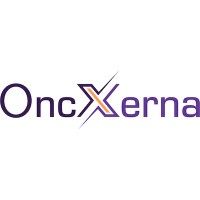预约演示
更新于:2025-05-07
DLL4 x VEGF
更新于:2025-05-07
关联
4
项与 DLL4 x VEGF 相关的药物作用机制 DLL4抑制剂 [+1] |
原研机构 |
最高研发阶段临床2/3期 |
首次获批国家/地区- |
首次获批日期1800-01-20 |
作用机制 DLL4抑制剂 [+1] |
最高研发阶段临床2期 |
首次获批国家/地区- |
首次获批日期1800-01-20 |
作用机制 DLL4抑制剂 [+1] |
在研机构- |
原研机构 |
在研适应症- |
最高研发阶段终止 |
首次获批国家/地区- |
首次获批日期1800-01-20 |
16
项与 DLL4 x VEGF 相关的临床试验NCT06548412
CTX-009 With Gemcitabine, Cisplatin, and Durvalumab as First-line Therapy in Patients With Unresectable or Metastatic Biliary Tract Cancers
To evaluate combination therapy of adding CTX-009 to the standard therapy GCD as first-line therapy in patients with unresectable or mBTC.
开始日期2025-01-22 |
申办/合作机构 |
100 项与 DLL4 x VEGF 相关的临床结果
登录后查看更多信息
100 项与 DLL4 x VEGF 相关的转化医学
登录后查看更多信息
0 项与 DLL4 x VEGF 相关的专利(医药)
登录后查看更多信息
327
项与 DLL4 x VEGF 相关的文献(医药)2025-05-01·Current Stem Cell Research & Therapy
Exosomes from MicroRNA-125b-Modified Adipose-Derived Stem Cells Promote Wound Healing of Diabetic Foot Ulcers
Article
作者: Guo, Enqi ; Chen, Qiang ; Wu, Jianlong ; Wang, Liang
2025-03-19·Investigative Ophthalmology & Visual Science
Targeted siRNA Delivery Against RUNX1 Via tFNA: Inhibiting Retinal Neovascularization and Restoring Vessels Through Dll4/Notch1 Signaling
Article
作者: Wang, Qiong ; Lai, Yanting ; Xu, Xiaoxiao ; Lin, Yunfeng ; Zhou, Xiaodi ; Ding, Xiaoyan ; Zhang, Linyan ; Sun, Limei
2024-12-01·Cancer Science
Population pharmacokinetic model of ABL001 /CTX ‐009 (anti‐VEGF /DLL4 ) in adult cancer patients with solid tumor
Article
作者: You, Weon‐Kyoo ; Eom, Jaehyun ; Oh, Jaeseong ; Yu, Kyung‐Sang ; Na, Joo Young ; Huh, Ki Young ; Jeon, Juyeun ; Lee, Sangmi ; Ahn, Jinhyung
55
项与 DLL4 x VEGF 相关的新闻(医药)2025-04-28
·药明康德
本期看点1. 下一代CD47阻断疗法evorpacept联用标准化疗方案治疗复发或难治性B细胞非霍奇金淋巴瘤(R/R B-NHL)的早期临床试验结果亮眼,80%患者获得完全缓解(CR),两年总生存(OS)率为84%。2. T细胞激活剂invikafusp alfa的1/2期临床试验结果积极,在肿瘤突变负荷高(TMB-H),对PD-1/PD-L1耐药且接受过大量前期治疗的难治性患者中的疾病控制率(DCR)为67%。3. Dectin-2靶向抗体BDC-3042在1期临床试验中展现积极抗肿瘤作用,在17例患有6种不同类型肿瘤的患者中,80%(12/15)的可评估患者达到了疾病稳定(SD)或更好的状态。Evorpacept(ALX148):公布1/2期联合治疗试验数据ALX Oncology公司公布了其CD47抑制剂evorpacept与标准治疗方案利妥昔单抗和来那度胺(R²)联用的1/2期由研究者发起的临床试验(IST)的积极数据,该试验针对复发或难治性B细胞非霍奇金淋巴瘤患者。Evorpacept是一种下一代CD47阻断疗法,它将高亲和性CD47结合结构域与经特殊处理的Fc结构域相结合,因此无法激活Fc受体,有望降低CD47靶向抗体因激活Fc受体可能产生的毒副作用。此外,与其它抗CD47抗体相比,evorpacept的分子量更小,更容易渗透到实体瘤中,从而提高疗效。此次试验共纳入20例惰性(18例)和侵袭性(2例)R/R B-NHL患者,所有患者均曾接受过抗CD20单抗治疗。在中位随访28个月后,联合治疗组患者的两年无进展生存(PFS)率为69%,两年OS率为84%。16例患者(80%)达到CR,最佳总缓解率(ORR)为90%。18例接受evorpacept联用R²方案的惰性NHL患者的CR率为83%,高于历史上在仅使用R²方案的类似患者中观察到的34%的CR率。此外,治疗期间观察到T细胞和抗肿瘤巨噬细胞显著增加。安全性方面,该联合治疗方案耐受性良好,未出现剂量限制性毒性。Invikafusp alfa(STAR0602):公布1/2期临床试验数据Marengo Therapeutics公司将公布其潜在“first-in-class”T细胞激活剂invikafusp alfa的1/2期临床试验更新结果。Invikafusp alfa是一款双特异性融合蛋白,它不但可以与T细胞受体的Vβ链结合,还可以激活另一条T细胞共刺激信号通路,促进特定效应Vβ T细胞的扩增,从而增强抗肿瘤免疫反应。摘要结果显示,在肿瘤突变负荷高(TMB-H),对PD-1/PD-L1耐药且接受过大量前期治疗的难治性患者中,优化剂量的invikafusp alfa在9名可评估疗效的患者中达到67%的DCR,其中两名患者获得确认部分缓解(PR),一名患者缓解持续时间超过12个月。此外,研究发现CD8阳性、Vβ T细胞的剂量依赖性、选择性扩增,在2期临床推荐剂量下最高扩增600%。扩增的Vβ T细胞表现出记忆表型并表达细胞毒性效应分子。基于初步临床及临床前结果,美国FDA已授予invikafusp alfa治疗TMB-H结直肠癌的快速通道资格。BDC-3042:公布1期临床试验数据Bolt Biotherapeutics公司公布了其抗体疗法BDC-3042的1期剂量递增研究结果。BDC-3042是一种靶向dectin-2的激动剂抗体,dectin-2是一种由肿瘤相关巨噬细胞(TAM)表达的免疫激活受体。作为C型凝集素受体,dectin-2在病原体识别及诱导保护性免疫反应中发挥着关键作用。截至2025年4月7日的数据,BDC-3042在10 mg/kg每两周一次的剂量下表现出良好的耐受性,未出现剂量限制性毒性或药物相关严重不良事件。同时,该药物显示出明确的生物学活性,促炎细胞因子和趋化因子水平呈剂量依赖性升高。BDC-3042展现出潜在的抗肿瘤活性,80%的可评估患者(12/15)的最佳缓解为SD或更好,所有3例非小细胞肺癌患者均实现≥12周的SD,包括1例未确认的PR。Tovecimig(CTX-009):研究者发起的临床试验完成首例患者给药Compass Therapeutics公司宣布,其靶向DLL4和VEGF-A的双特异性抗体tovecimig(CTX-009)用于一线治疗胆道癌(BTC)的IST研究已完成首例患者给药。Tovecimig通过同时阻断促血管生成的DLL4和VEGF-A信号通路发挥抗肿瘤作用。临床前及早期临床数据显示,其在结直肠癌、胃癌、胆管癌、胰腺癌和非小细胞肺癌等多种实体瘤中具有活性。在既往接受过多种治疗且对已获批抗VEGF疗法产生耐药的晚期癌症患者群体中,已观察到接受tovecimig单药治疗的患者获得了PR。VS-7375:IND申请获得FDA许可Verastem Oncology公司宣布,美国FDA已批准其口服KRAS G12D(ON/OFF)抑制剂VS-7375的IND申请,公司预计将于2025年年中启动一项1/2a期临床研究,并计划在晚期实体瘤(如胰腺癌、结直肠癌和非小细胞肺癌)中开展多个扩展队列试验,包括联合疗法评估。VS-7375由Verastem Oncology与劲方医药合作开发,是一款口服高活性、高选择性小分子KRAS G12D(ON/OFF)抑制剂,通过非共价形式结合KRAS G12D蛋白,抑制其与下游效应蛋白结合,从而在细胞中破坏KRAS G12D对下游通路的持续活化,最终高效抑制肿瘤细胞增殖。参考资料(可上下滑动查看)[1] Korea’s InThera receives IND approval for norovirus vaccine candidate. Retrieved April 25, 2025, from https://www.koreabiomed.com/news/articleView.html?idxno=27327[2] Compass Therapeutics Announces First Patient Dosed in an Investigator Sponsored Trial of Tovecimig in the First-Line Setting for Patients with Biliary Tract Cancer. Retrieved April 25, 2025, from https://www.globenewswire.com/news-release/2025/04/21/3064600/0/en/Compass-Therapeutics-Announces-First-Patient-Dosed-in-an-Investigator-Sponsored-Trial-of-Tovecimig-in-the-First-Line-Setting-for-Patients-with-Biliary-Tract-Cancer.html[3] Aclaris Therapeutics Secures U.S. Food and Drug Administration IND Clearance for ATI-052, Enabling Advancement of its Novel Bispecific Anti-TSLP/IL-4R Investigational Antibody. Retrieved April 25, 2025, from https://www.globenewswire.com/news-release/2025/04/22/3065328/37216/en/Aclaris-Therapeutics-Secures-U-S-Food-and-Drug-Administration-IND-Clearance-for-ATI-052-Enabling-Advancement-of-its-Novel-Bispecific-Anti-TSLP-IL-4R-Investigational-Antibody.html[4] Tagworks Pharmaceuticals Announces FDA Clearance of IND Application and Initiation of Phase 1 Clinical Trial for TGW101 and Appoints Keith Orford, MD, PhD, as Chief Medical Officer. Retrieved April 25, 2025, from https://www.prnewswire.com/news-releases/tagworks-pharmaceuticals-announces-fda-clearance-of-ind-application-and-initiation-of-phase-1-clinical-trial-for-tgw101-and-appoints-keith-orford-md-phd-as-chief-medical-officer-302433654.html[5] Ensem Therapeutics Announces U.S. FDA IND Clearance to Initiate Clinical Development of ETX-636. Retrieved April 25, 2025, from https://www.businesswire.com/news/home/20250422440145/en/Ensem-Therapeutics-Announces-U.S.-FDA-IND-Clearance-to-Initiate-Clinical-Development-of-ETX-636[6] AP Biosciences Doses First Patient in Phase 1/2 Clinical Trials of AP402 for HER2+ Cancer Patients. Retrieved April 25, 2025, from https://www.globenewswire.com/news-release/2025/04/22/3065502/0/en/AP-Biosciences-Doses-First-Patient-in-Phase-1-2-Clinical-Trials-of-AP402-for-HER2-Cancer-Patients.html[7] Kymera Therapeutics Announces First Patient Dosed in BROADEN Phase 1b Atopic Dermatitis Clinical Trial of KT-621, a First-in-Class Oral STAT6 Degrader. Retrieved April 25, 2025, from https://www.globenewswire.com/news-release/2025/04/22/3065332/0/en/Kymera-Therapeutics-Announces-First-Patient-Dosed-in-BROADEN-Phase-1b-Atopic-Dermatitis-Clinical-Trial-of-KT-621-a-First-in-Class-Oral-STAT6-Degrader.html[8] Onward Therapeutics Announces IMPD Approval for Its Subsidiary Emercell to Start Clinical Investigation of Allogeneic NK Cell Therapy OT-C001 in Combination with Rituximab. Retrieved April 25, 2025, from https://www.prnewswire.com/news-releases/onward-therapeutics-announces-impd-approval-for-its-subsidiary-emercell-to-start-clinical-investigation-of-allogeneic-nk-cell-therapy-ot-c001-in-combination-with-rituximab-302433928.html[9] CytoAgents Announces Completion of Cohort 1 Dose-escalation Stage of Clinical Phase 1B to Advance Research on Cytokine Release Syndrome. Retrieved April 25, 2025, from https://www.businesswire.com/news/home/20250424559289/en/CytoAgents-Announces-Completion-of-Cohort-1-Dose-escalation-Stage-of-Clinical-Phase-1B-to-Advance-Research-on-Cytokine-Release-Syndrome[10] Verastem Oncology Announces U.S. IND Clearance of VS-7375, Oral KRAS G12D (ON/OFF) Inhibitor, Enabling Phase 1/2a Trial in Advanced Solid Tumors. Retrieved April 25, 2025, from https://pipelinereview.com/verastem-oncology-announces-u-s-ind-clearance-of-vs-7375-oral-kras-g12d-on-off-inhibitor-enabling-phase-1-2a-trial-in-advanced-solid-tumors/[11] Ascletis Announces Positive Topline Results of U.S. Phase Ib Multiple Ascending Dose Study of Small Molecule Oral GLP-1R Agonist ASC30 and Submission of 13-week Phase IIa Study Protocol to FDA. Retrieved April 25, 2025, from https://www.prnewswire.com/news-releases/ascletis-announces-positive-topline-results-of-us-phase-ib-multiple-ascending-dose-study-of-small-molecule-oral-glp-1r-agonist-asc30-and-submission-of-13-week-phase-iia-study-protocol-to-fda-302434655.html[12] Marengo to Share Updated Clinical Results from STARt-001 Phase 1/2 Clinical Trial Featuring Invikafusp Alfa Monotherapy Activity in PD1 Resistant Tumors at Upcoming AACR 2025 Clinical Plenary Oral Presentation. Retrieved April 25, 2025, from https://www.prnewswire.com/news-releases/marengo-to-share-updated-clinical-results-from-start-001-phase-12-clinical-trial-featuring-invikafusp-alfa-monotherapy-activity-in-pd1-resistant-tumors-at-upcoming-aacr-2025-clinical-plenary-oral-presentation-302437765.html[13] CT206 - ICAM-1 directed chimeric antigen receptor (CAR) T cells (AIC100) in patients with advanced thyroid cancers: Clinical and translational data from the phase 1 dose escalation study. Retrieved April 25, 2025, from https://www.abstractsonline.com/pp8/#!/20273/presentation/10430[14] Bolt Biotherapeutics Presents Results from the Phase 1 Dose-Escalation Clinical Study of BDC-3042 at AACR Annual Meeting 2025. Retrieved April 25, 2025, from https://www.globenewswire.com/news-release/2025/04/25/3068520/0/en/Bolt-Biotherapeutics-Presents-Results-from-the-Phase-1-Dose-Escalation-Clinical-Study-of-BDC-3042-at-AACR-Annual-Meeting-2025.html免责声明:本文仅作信息交流之目的,文中观点不代表药明康德立场,亦不代表药明康德支持或反对文中观点。本文也不是治疗方案推荐。如需获得治疗方案指导,请前往正规医院就诊。版权说明:欢迎个人转发至朋友圈,谢绝媒体或机构未经授权以任何形式转载至其他平台。转载授权请在「药明康德」微信公众号回复“转载”,获取转载须知。分享,点赞,在看,聚焦全球生物医药健康创新2
临床结果基因疗法临床1期细胞疗法
2025-04-28
·医药笔记
▎Armstrong科望医药成立于2017年,率先布局全球领先的创新免疫疗法,聚焦关键靶点,致力于解决肿瘤和自身免疫病领域的重大未满足临床需求。ES104(Tovecimig)为VEGF/DLL4双抗,由ABL Bio研发,后授权给美国TRIGR,科望生物从TRIGR获得大中华区权益。ES104采用Grabody双抗技术,为scFv融合形式。前不久,在胆道癌的关键性临床试验中取得成功,达到主要终点,有望成为胆道癌二线治疗的新标准,为这一高度未满足的临床领域带来新的希望。ES102为六价OX40抗体,由纳米抗体融合Fc而成,主要是通过多价设计解决Cross-linking问题,可以保证高激动剂活性。ES102与PD-1抗体联用治疗头颈癌和非小细胞肺癌的初步临床中获得优异的疗效数据。ES014为全球首创的CD39/TGFβ双抗,临床前研究表明对PD-1抗体抵抗的肿瘤模型仍然有效。科望医药构建了BiME双抗技术平台,通过募集巨噬细胞杀伤肿瘤细胞。总结2023年底,科望医药与安斯泰来达成合作,就其BiME技术平台以及ES019及另一款新药达成授权合作,表明了对其BiME技术平台及产品的高度认可。科望医药DLL4/VEGF双抗在胆道癌关键临床中达到ORR主要终点,表明其有望成为新一代血管抑制疗法,有望拓展至更多瘤种。在技术平台和关键产品不断取得突破的基础上,科望医药已经成为双抗赛道强有力的角逐者,后续发展值得关注。Armstrong技术全梳理系列GPRC5D靶点全梳理;CD40靶点全梳理;CD47靶点全梳理;补体靶向药物技术全梳理;补体药物:眼科治疗的重要方向;Claudin 6靶点全梳理;Claudin 18.2靶点全梳理;靶点冷暖,行业自知;中国大分子新药研发格局;被炮轰的“me too”;佐剂百年史;胰岛素百年传奇;CUSBEA:风雨四十载;中国新药研发的焦虑;中国生物医药企业的研发竞争;中国双抗竞争格局;中国ADC竞争格局;中国双抗技术全梳理;中国ADC技术全梳理;Ambrx技术全梳理;Vir Biotech技术全梳理;Immune-Onc技术全梳理;恺佧生物技术全梳理;同宜医药技术全梳理;百奥赛图技术全梳理;腾盛博药技术全梳理;创胜集团技术全梳理;永泰生物技术全梳理;中国抗体技术全梳理;德琪医药技术全梳理;德琪医药技术全梳理2.0;和铂医药技术全梳理;荣昌生物技术全梳理;再鼎医药技术全梳理;药明生物技术全梳理;吉凯基因技术全梳理;基石药业技术全梳理;百济神州技术全梳理;百济神州技术全梳理第2版;信达生物技术全梳理;中山康方技术全梳理;复宏汉霖技术全梳理;先声药业技术全梳理;君实生物技术全梳理;嘉和生物技术全梳理;志道生物技术全梳理;道尔生物技术全梳理;尚健生物技术全梳理;康宁杰瑞技术全梳理;科望医药技术全梳理;岸迈生物技术全梳理;礼进生物技术全梳理;康桥资本技术全梳理;余国良的抗体药布局;荃信生物技术全梳理;安源医药技术全梳理;三生国健技术全梳理;仁会生物技术全梳理;乐普生物技术全梳理;宜明昂科技术全梳理;派格生物技术全梳理;迈威生物技术全梳理;Momenta技术全梳理;NGM技术全梳理;普米斯生物技术全梳理;三叶草生物技术全梳理;贝达药业抗体药全梳理;泽璟制药抗体药全梳理;恒瑞医药抗体药全梳理;齐鲁制药抗体药全梳理;石药集团抗体药全梳理;豪森药业抗体药全梳理;华海药业抗体药全梳理;科伦药业抗体药全梳理;百奥泰技术全梳理;凡恩世技术全梳理。Armstrong:我们已经建立读者实名讨论微信群,可以添加小编微信(wuwenjun7237)后进群,添加时请主动注明姓名、企业、职位。
免疫疗法抗体药物偶联物
2025-04-26
点击蓝字关注我们本周,热点很多。首先是审评审批方面,国内来看,多个药获批一线治疗某个适应症,康方生物依沃西单抗获批一线治疗PD-L1阳性NSCLC,诺诚健华奥布替尼一线治疗CLL/SLL以及奥赛康利厄替尼一线治疗NSCLC。国外而言,康方生物/正大天晴PD-1单抗在美国获批上市以及诺和诺德抢先礼来递交口服GLP-1减重上市申请;其次是研发方面,最值得关注的就是,依沃西头对头替雷利珠单抗Ⅲ期成功;最后是交易及投融资方面,荃信生物长效自免双抗出海,总交易额约5.55亿美元。本期盘点包括审评审批、研发以及交易及投融资三大板块,统计时间为2025.4.21-4.25,包含28条信息。 审评审批NMPA上市批准1、4月22日,NMPA官网显示,百时美施贵宝的PD-1抑制剂纳武利尤单抗注射液(欧狄沃)获批新适应症:联合含铂化疗作为新辅助治疗,术后继续以欧狄沃作为单药辅助治疗,用于治疗可手术切除的Ⅱ、ⅢA和ⅢB期且无已知表皮生长因子受体(EGFR)突变或间变性淋巴瘤激酶(ALK)重排的成人非小细胞肺癌(NSCLC)患者。2、4月22日,NMPA官网显示,阿斯利康的瑞利珠单抗注射液(ravulizumab)获批上市,与常规治疗药物联合用于治疗抗乙酰胆碱受体(AChR)抗体阳性的成人全身型重症肌无力(gMG)患者。瑞利珠单抗是一款长效补体C5蛋白抑制剂,每八周一次的给药方式。3、4月25日,NMPA官网显示,君实生物抗PD-1抗体特瑞普利单抗注射液第12项适应症获批,用于不可切除或转移性黑色素瘤一线治疗。特瑞普利单抗已在中国内地获批11项适应症,涵盖黑色素瘤、鼻咽癌、尿路上皮癌、食管鳞癌、非小细胞肺癌、肾癌、小细胞肺癌、三阴性乳腺癌、肝细胞癌等适应症。4、4月25日,NMPA官网显示,Recordati国全资子公司锐康迪医药申报的注射用双羟萘酸帕瑞肽微球获批上市,用于治疗无法手术或手术后未治愈和通过另一种生长抑素类似物治疗控制不佳的成人肢端肥大症患者。这是一款长效帕瑞肽产品(pasireotidepamoate)。5、4月25日,NMPA官网显示,康方生物的PD-1/VEGF双抗依沃西单抗注射液新适应症获批,单药用于PD-L1阳性[肿瘤比例评分(TPS)≥1%]的表皮生长因子受体(EGFR)基因突变阴性和间变性淋巴瘤激酶(ALK)阴性的局部晚期或转移性非小细胞肺癌(NSCLC)的一线治疗。6、4月25日,NMPA官网显示,奥赛康药业1类新药利厄替尼片第二项适应症获批,具有EGFR外显子19缺失(19DEL)或外显子21置换突变(L858R)的局部晚期或转移性非小细胞肺癌(NSCLC)成人患者的一线治疗。利厄替尼是具有全新分子结构的第三代表皮生长因子受体酪氨酸激酶抑制剂(EGFR-TKI)。7、4月25日,NMPA官网显示,诺诚健华的奥布替尼片一项新适应症获批,用于一线治疗慢性淋巴细胞白血病(CLL)/小淋巴细胞淋巴瘤(SLL)。奥布替尼是诺诚健华研发的一款不可逆布鲁顿酪氨酸激酶(BTK)抑制剂,可用于治疗淋巴瘤及自身免疫性疾病。2020年12月,奥布替尼首次在中国获批。8、4月25日,NMPA官网显示,强生的EGFR/c-MET双抗埃万妥单抗(锐珂)获批新适应症,与卡铂和培美曲塞联合给药,治疗携带表皮生长因子受体(EGFR)19号外显子缺失或21号外显子L858R置换突变且在EGFR酪氨酸激酶抑制剂治疗期间或之后疾病进展的局部晚期或转移性非鳞状非小细胞肺癌(NSCLC)成人患者。2025年2月,已获批用于治疗携带EGFR20号外显子插入突变的局部晚期或转移性非小细胞肺癌成人患者的一线治疗。9、4月25日,NMPA官网显示,辉瑞的阿昔替尼片(英立达)获批新适应症,联合特瑞普利单抗用于中高危的不可切除或转移性肾细胞癌(RCC)患者的一线治疗。阿昔替尼是一种口服的、作用于血管内皮生长因子受体(VEGFR)1,2和3的强效和高选择性酪氨酸激酶抑制剂,于2015年4月在中国首次获批。申请10、4月21日,CDE官网显示,百时美施贵宝的瑞普替尼胶囊新适应症申报上市,用于治疗携带神经营养酪氨酸受体激酶(NTRK)基因融合的实体瘤成人患者,该类患者为局部晚期、转移性,或手术切除可能导致严重并发症的患者,且这些患者在接受既往治疗后出现疾病进展,或缺乏有效的治疗方案选择。瑞普替尼是靶向作用于ROS1及NTRK致癌驱动基因的新一代酪氨酸激酶抑制剂(TKI),再鼎医药拥有该产品在大中华区的独家开发及商业化权。11、4月23日,CDE官网显示,康乐卫士的重组三价人乳头瘤病毒(16/18/58型)疫苗(大肠杆菌)申报上市,用于预防HPV16/18/58型相关的持续感染和宫颈癌等疾病。这是国内首个申报上市的国产三价HPV疫苗。此前3月,该产品已被纳入优先审评品种名单。该三价HPV疫苗将对东亚地区女性宫颈癌的保护范围从70%提高至78%。12、4月23日,CDE官网显示,强生1类新药尼卡利单抗注射液申报上市,预测用于治疗自身抗体阳性(抗乙酰胆碱受体[AChR]阳性、抗肌肉特异性酪氨酸激酶[MuSK]阳性或抗低密度脂蛋白受体4[LRP4]阳性)的全身型重症肌无力(gMG)成人患者和青少年患者(大于12岁)。尼卡利单抗是一款靶向新生儿Fc受体(FcRn)的抗体疗法,该产品已向FDA申报上市,用于治疗全身性重症肌无力(gMG),PDUFA日期为4月29日。13、4月23日,CDE官网显示,正大天晴抗PD-L1单抗贝莫苏拜单抗注射液、小分子多靶点酪氨酸激酶抑制剂盐酸安罗替尼胶囊联合疗法多项新适应症申报上市,包括:贝莫苏拜单抗联合或不联合安罗替尼用于巩固治疗同步/序贯放化疗后未进展的、局部晚期/不可切除(Ⅲ期)的非小细胞肺癌患者;贝莫苏拜单抗联合化疗后序贯联合安罗替尼一线治疗晚期鳞状非小细胞肺癌(sq-NSCLC);贝莫苏拜单抗联合安罗替尼治疗晚期或不可切除腺泡状软组织肉瘤。14、4月24日,CDE官网显示,同源康医药1类新药甲磺酸艾多替尼片递交Pre-NDA申请,这是一款拟治疗针对非小细胞肺癌(NSCLC)脑转移患者的第三代EGFR-TKI。艾多替尼是第三代EGFR-TKI,其能够不可逆地结合某些EGFR突变体(包括21外显子L858R突变、19外显子缺失、L858R/T790M突变和19外显子缺失╱T790M突变),最终抑制癌细胞的增殖和转移。临床批准 15、4月21日,CDE官网显示,百奥泰生物1类新药注射用BAT7111获批临床,拟开发治疗晚期实体瘤。BAT7111由重组人源化抗PD-1抗体和全人源4-1BB单域抗体组成。本次是该产品首次在中国获批IND。16、4月21日,CDE官网显示,甘李药业1类新药GZR102获批临床,拟开发治疗2型糖尿病。GZR102注射液是其自主研发的基础胰岛素与胰高糖素样肽-1受体激动剂(GLP-1RA)的固定比例复方周制剂,由在研超长效胰岛素GZR4注射液和超长效GLP-1RA博凡格鲁肽(GZR18)注射液以固定比例组成。本次是该产品首次在中国获批临床。17、4月25日,CDE官网显示,施能康医药1类新药SNK-2726注射液获批临床,拟开发治疗高血压。这是华东医药和施能康医药正在共同开发的一款靶向血管紧张素原(AGT)的小核酸(siRNA)候选药物,已于2025年2月在美国获批IND,本次是该产品首次在中国获批IND。优先审评18、4月23日,CDE官网显示,诺诚健华1类新药卓乐替尼片上市申请拟纳入优先审评,用于治疗成人和12岁及以上青少年实体瘤患者:-携带神经营养酪氨酸受体激酶(NTRK)融合基因-患有局部晚期、转移性疾病或手术切除可能导致严重并发症的以及-无满意替代治疗或既往治疗失败的患者。卓乐替尼片是诺诚健华在研的第二代泛TRK抑制剂。突破性疗法19、4月24日,CDE官网显示,翰森的注射用HS-20089拟纳入突破性治疗品种,用于治疗铂耐药复发上皮性卵巢癌、输卵管癌或原发性腹膜癌患者。HS-20089是一种新型B7-H4 ADC,2023年10月,GSK和翰森就该药达成独家许可协议,GSK获得该药全球独家权利(中国大陆、中国香港、中国澳门和中国台湾除外),以推进HS-20089的开发和商业化。FDA上市批准20、4月24日,FDA官网显示,康方生物与正大天晴联合开发的派安普利单抗获批两项适应症,分别为:联合顺铂或卡铂和吉西他滨用于复发或转移性非角化性鼻咽癌(NPC)成人患者的一线治疗;单药治疗成人转移性非角化性鼻咽癌,这些患者在铂基化疗和至少一种其他先前治疗后或之后出现疾病进展。派安普利单抗为一款采用IgG1亚型并进行Fc段改造的新型差异化抗PD-1单抗。申请21、4月22日,FDA官网显示,诺和诺德递交口服司美格鲁肽减重适应症的上市申请。2023年5月,诺和诺德公布了口服司美格鲁肽50mg治疗肥胖症的Ⅲ期临床试验OASIS1临床结果。这是一项为期68周的疗效和安全性试验,在667名患有肥胖或超重并伴有一种或多种合并症的成年人中比较每日一次口服司美格鲁肽50mg或安慰剂的体重管理效果。结果显示,口服司美格鲁肽在第68周时具有统计学意义和更好的体重减轻。研发临床状态22、4月23日,药物临床试验登记与信息公示平台官网显示,安进登记了一项比较罗莫索珠单抗与双膦酸盐用于成骨不全儿童和青少年治疗的有效性和安全性的Ⅲ期、开放标签、多中心、随机研究。该研究计划纳入113名受试者,其中国内7名,国际106名。基于FDA要求的主要终点为直至第12个月的临床骨折(临床椎体骨折和非椎体骨折)数量。临床数据23、4月21日,阿斯利康宣布,和第一三共合作开发的德曲妥珠单抗与帕妥珠单抗联合治疗方案在Ⅲ期DESTINY-Breast09研究中,相较于当前一线标准治疗方案(紫杉烷+曲妥珠单抗+帕妥珠单抗,THP),显著改善了HER2阳性转移性乳腺癌患者的无进展生存期(PFS),具有统计学意义和临床意义。24、4月23日,康方生物宣布,PD-1/VEGF双抗依沃西单抗(依达方)联合化疗对比替雷利珠单抗联合化疗一线治疗晚期鳞状非小细胞肺癌(sq-NSCLC)注册性Ⅲ期临床(AK112-306/HARMONi-6),经独立数据监察委员会(IDMC)评估的预先设定的期中分析显示强阳性结果,达到无进展生存期(PFS)的主要研究终点,研究结果具有统计学显著获益和重大临床获益。25、4月23日,科望医药与CompassTherapeutics宣布,VEGF/DLL4双抗tovecimig用于二线治疗胆道癌的Ⅱ/Ⅲ期临床达到主要终点。数据显示,在二线胆道癌患者中,tovecimig联合紫杉醇的客观缓解率(ORR)达到17.1%,相比单独使用紫杉醇的5.3%显著提高,成功达到主要临床终点。26、4月24日,赛诺菲宣布,TNF-α/OX40L双抗药物Brivekimig治疗化脓性汗腺炎(HS)的Ⅱ期研究达到主要终点。结果显示,在未接受过生物制剂治疗的中重度HS患者中,相比于安慰剂组,Brivekimig(每2周1次)组达到HiSCR50的患者比例具有临床意义。在其他指标上,Brivekimig组也实现了具有临床意义的改善。交易及投融资27、4月24日,荃信生物宣布,与Caldera就QX030N签订授权协议,授予Caldera开发及商业化临床前阶段长效自免双抗QX030N的全球独家许可。荃信生物将获得1000万美元一次性、不可退还及不可抵扣的预付款及Caldera约24.88%的股权;在达成特定临床开发、监管及商业里程碑的前提下,荃信生物还可获得最多5.45亿美元的额外付款;此外,荃信生物有权在QX030N首次商业销售后的一段特定时间内收取销售净额的分级特许权使用费。28、4月25日,映恩生物宣布,与阿斯利康建立合作,双方将HER3靶向ADC药物DB-1310与第三代EGFR抑制剂奥希替尼的联合疗法开展临床探索。根据协议,阿斯利康将向映恩生物提供奥希替尼,开展一项Ⅰ/Ⅱ期探索性研究,用于评估DB-1310与奥希替尼二线联合治疗EGFR突变晚期非小细胞肺癌(NSCLC)的潜力。END【企业推荐】领取CPHI & PMEC China 2025展会门票来源:CPHI制药在线声明:本文仅代表作者观点,并不代表制药在线立场。本网站内容仅出于传递更多信息之目的。如需转载,请务必注明文章来源和作者。投稿邮箱:Kelly.Xiao@imsinoexpo.com▼更多制药资讯,请关注CPHI制药在线▼点击阅读原文,进入智药研习社~
上市批准临床3期优先审批
分析
对领域进行一次全面的分析。
登录
或

生物医药百科问答
全新生物医药AI Agent 覆盖科研全链路,让突破性发现快人一步
立即开始免费试用!
智慧芽新药情报库是智慧芽专为生命科学人士构建的基于AI的创新药情报平台,助您全方位提升您的研发与决策效率。
立即开始数据试用!
智慧芽新药库数据也通过智慧芽数据服务平台,以API或者数据包形式对外开放,助您更加充分利用智慧芽新药情报信息。
生物序列数据库
生物药研发创新
免费使用
化学结构数据库
小分子化药研发创新
免费使用



